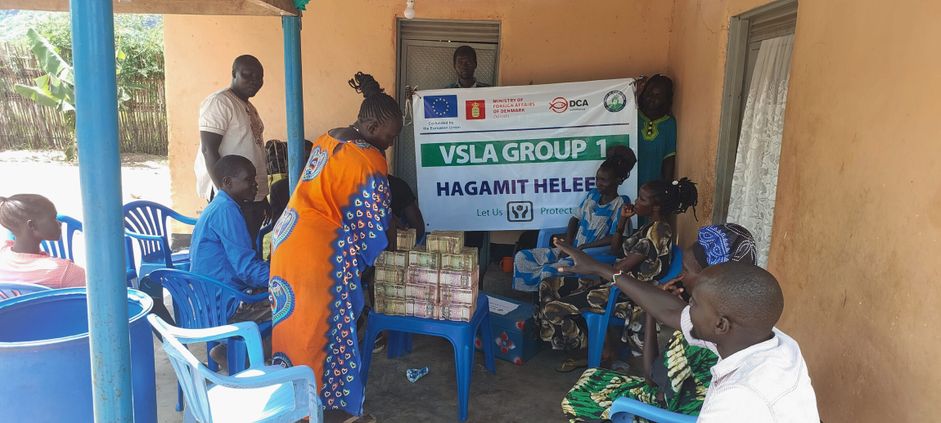James Nachidi is the Area Coordinator for Root of Generations (RoG) in Budi County in Eastern Equatoria. He lives and works in Chukudum – the administrative headquarters of the county – and has been managing the implementation of the SPREAD project since the beginning of 2024.
Q: What are the main challenges that communities in Chukudum/Budi face today?
James: The major challenges include prevalent insecurity, poor road infrastructure, lack of access to financial institutions, inflation in market prices, and erratic rainfall. These factors make everyday survival difficult and compound the vulnerabilities of women and youth.
Q: How has the SPREAD project helped survivors and vulnerable groups, particularly women and youth?
James: SPREAD has made a real difference. Many women, girls, and boys were trained in business and Village Savings and Loan Association (VSLA) models. They now save money, access small loans, and run small businesses that help meet daily needs – like school fees, food, and healthcare. This support has lifted many families out of extreme vulnerability.
Q: How has the project contributed to reducing risky behaviors and conflict?
James: When youth are actively engaged in agricultural work, they are less likely to participate in cattle raiding or ambushes. Also, the peace awareness campaigns we carried out in Lotukei and Homiri have helped reclaim land for farming and restore peaceful coexistence.
Q: What efforts have been made to support survivors in terms of their mental health and psychosocial needs?
James: Through community engagement, we’ve provided support structures and safe spaces. Survivors also receive psychosocial support, and we work with local leaders to ensure these efforts are sustained.
Q: What milestones have you achieved in farming?
James: We trained 50 farmers in agroecology, irrigation, and agroforestry. They’ve learned about water harvesting, crop rotation, intercropping, and more. They’ve produced beans, groundnuts, simsim, hibiscus, and other crops. Some of this harvest has been sold, boosting local income.
Q: What role has climate change played in your interventions?
James: A big one. We’ve helped farmers plant over 300 trees – mangoes, bananas, lemon, moringa, and more – through agroforestry initiatives. This not only helps with food but also combats ecosystem loss.

Q: How has SPREAD addressed domestic safety and energy use?
James: Through energy-efficient stoves. We trained 8 groups of 6 people each, and now there are over 200 stoves in use. These stoves reduce firewood consumption, minimize house fires and burns – especially for children. They also cook food faster which has helped lower GBV risks caused by food delays.
Q: Lastly, how is SPREAD enabling sustainable livelihoods?
James: By providing seed capital. Groups like Buthi Beekeepers now have 79 hives. Others are making soap or traditional crafts for income. This kind of support helps families become financially independent and reduce their vulnerability to exploitation or abuse.



